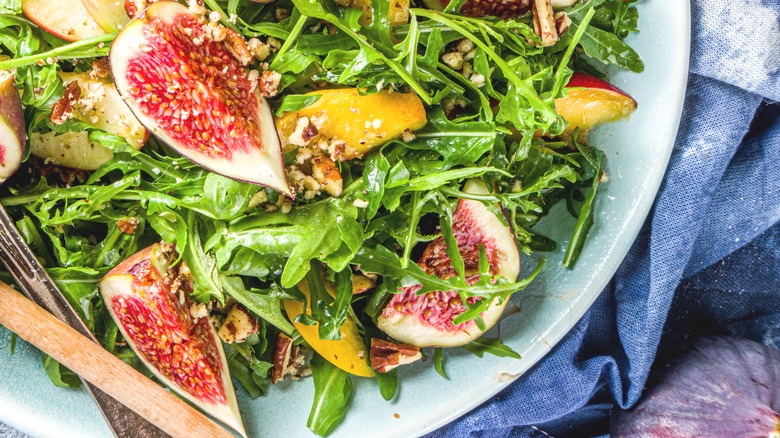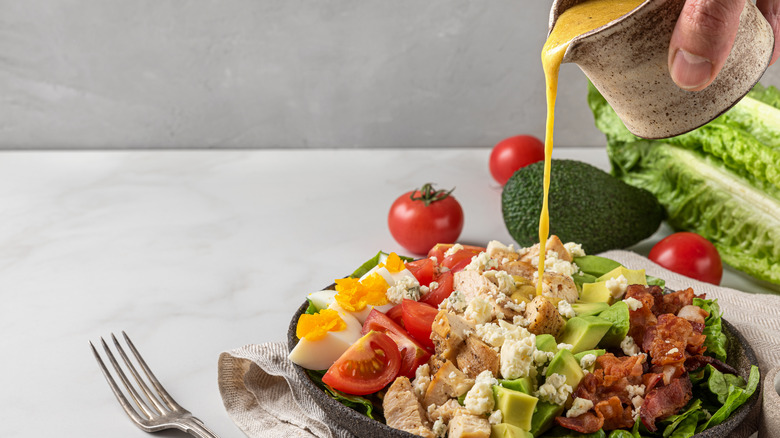Why Less Is Often More When It Comes To Salad
You're either a salads-are-the-perfect-weekday-lunch person or you're absolutely disgusted by the idea of eating raw leaves and vegetables. No matter which side you stand on, there's no in-between. Proponents of the latter think of salad as the most joyless, blandest food on the face of the earth, while salad enthusiasts swear by its healthiness. What neither group of people can deny, however, is that salads are quick and breezy to piece together, whilst also presenting the perfect opportunity to put yesterday's leftovers to use.
To make a salad that is the best it can be, chef and owner of Philidelphia-based eatery Hua, Yehuda Sichel gave Food & Wine a few key tips. Think of salad as a story you're trying to tell, is Sichel's advice: "Whether you tap your local farmers' market for in-season ingredients or forage for leftovers in your fridge, pick a theme and stick with it." Just because you have something sitting in the pantry doesn't necessarily mean that it belongs in your salad. Instead, Sichel suggests that "a handful of great ingredients can make a salad that's way more than the sum of its parts."
The golden rule applies to salad dressing, too
Former "Masterchef Australia" judge Matt Preston also seems to agree with the rule of less is more when it comes to salads (via Delicious). Unless the salad is supposed to shine on the table like roast turkey — in which case Preston gives you his "blessing" to go wild — it's best to not overdo it with too many clashing flavors. Pick your hero, he says, and then work around it.
While this rule applies to greens, veggies, and toppings, it also extends to the salad dressing. Both the number of ingredients you add to your homemade dressing and how much of it you pour into your bowl can make or break your salad. The duo behind San Francisco's Foreign Cinema tells Business World that when it comes to delicate summer salads, in particular, it's best to keep your dressing light. That means only a handful of ingredients: a splash of olive oil, a touch of fruity vinegar, and a pinch of salt and pepper.
Yehuda Sichel adds that, once your dressing is good to go, be sure you're tight-fisted with it (via Food & Wine). Pouring too much will drench your salad and overpower its flavor and texture. Unless you like your greens soaking in liquid, you only need a light drizzle of dressing.

